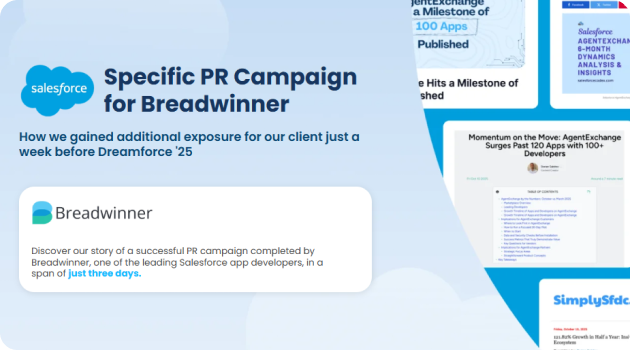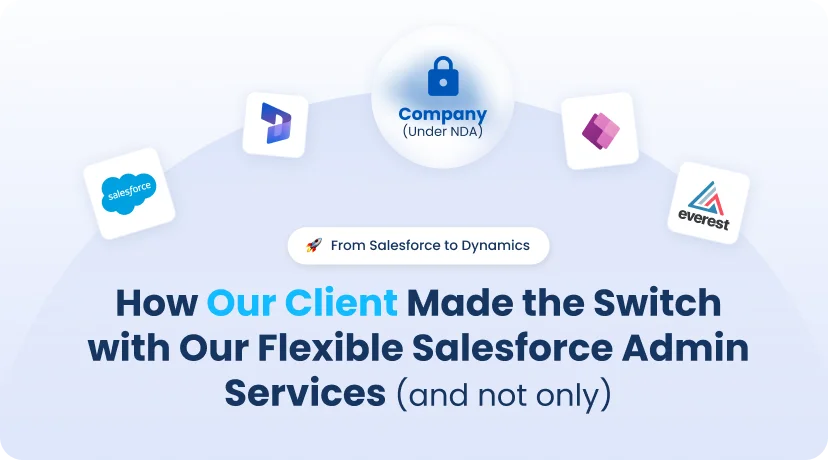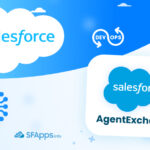
Salesforce Financial Services Cloud is a purpose-built CRM platform tailored to meet the evolving demands of wealth management firms, banks, and insurance providers. Unlike general-purpose CRM solutions, Financial Services Cloud provides specialized functionality that supports relationship management, regulatory compliance, and financial planning through a unified data architecture.
The adoption of industry-specific CRM platforms is increasing as financial organizations prioritize digital engagement and regulatory transparency. With 73% of companies leveraging CRM solutions by 2024, the need for tailored tools that support complex client interactions has become paramount. As a result, many financial institutions now employ Salesforce Finance Cloud developer talent to configure dashboards, build automation, and integrate third-party tools, ensuring the platform delivers maximum value for advisors and clients alike.
Consequently, hiring a certified Salesforce Finance Cloud developer allows organizations to unlock the platform’s full capabilities, from configuring dashboards and reports to integrating third-party tools and automating workflows. These professionals are instrumental in tailoring Salesforce to match the nuanced requirements of financial teams, improving both advisor productivity and client experience. As financial institutions pursue transformation through CRM modernization, expert-led implementation becomes a decisive factor in achieving sustainable value.
- Why Should Financial Companies Switch to Salesforce Financial Services Cloud
- The Role of a Salesforce Financial Services Cloud Developer
- Key Areas Where a Salesforce Financial Services Cloud Developer Adds Value
- Tasks Solving by a Salesforce Financial Services Cloud Developer
- How to Choose the Right Salesforce Financial Services Cloud Developer
- Cooperation Models for Hiring a Salesforce Financial Services Cloud Developer
- Possible Costs of Hiring a Nearshore Salesforce Financial Services Cloud Developer
- Benefits of Employ Salesforce Finance Cloud Developer Through a Service Provider
- FAQ
- What qualifications should a Salesforce Financial Services Cloud developer have?
- How long does it take to implement Financial Services Cloud?
- Can a Salesforce Financial Services Cloud developer handle data migration?
- What role do developers play in integrating third-party financial tools?
- Why is it important to hire a developer with financial services experience?
Why Should Financial Companies Switch to Salesforce Financial Services Cloud
A Salesforce Financial Services Cloud developer is vital for tailoring and extending the CRM to fit the unique needs of banking, insurance, and wealth management. They focus on:
- Customization:
- Configure data models, objects, and workflows for use cases like client onboarding, household management, and compliance tracking.
- Build automation with Apex, Lightning Web Components, and Flow Builder to boost advisor productivity.
- Integration:
- Connect Financial Services Cloud with core banking, payments, and compliance systems (FIS, Fiserv, Oracle FLEXCUBE) via REST or SOAP APIs.
- Ensure seamless, secure data flows across platforms.
- Compliance and Security:
- Build solutions that support regulations like GDPR, FINRA, and SOX.
- Implement encrypted data storage, secure access controls, and audit-ready logging.
With the Financial Services Cloud becoming central to operational efficiency and compliance, demand is rising for developers who can deliver secure, agile, and client-centric solutions across the financial services lifecycle. To make the most of this powerful platform, institutions must find top Salesforce Finance Cloud developer talent to build and maintain the tailored solutions their teams and clients require.
The Role of a Salesforce Financial Services Cloud Developer
A Salesforce Financial Services Cloud developer plays a pivotal role in configuring and extending Salesforce’s industry-specific CRM platform to meet the operational and regulatory needs of financial institutions. Their core responsibilities involve customizing data models, integrating third-party systems, and enforcing platform security within the context of banking, insurance, and wealth management operations.
Customization begins with aligning Salesforce objects and workflows to financial services use cases, such as client onboarding, household management, and compliance logging. Developers utilize tools like Apex, Lightning Web Components, and Flow Builder to create automation frameworks that streamline advisor productivity. This is particularly valuable as the Salesforce Financial Services Cloud platform provides industry-specific data models and dashboards designed for relationship-based service delivery. To take full advantage of this platform and its deep capabilities, many firms choose to engage Salesforce Finance Cloud development expert resources to design and implement tailored solutions.
Key Areas Where a Salesforce Financial Services Cloud Developer Adds Value
The value delivered by a Salesforce Financial Services Cloud developer extends across critical operational and client engagement dimensions within financial institutions. These professionals enable firms to maximize their CRM investment through technical implementations that enhance workflow efficiency, client experience, and regulatory adherence.
Process Automation and Advisor Productivity
One of the most significant contributions of a Financial Services Cloud developer is the automation of time-intensive processes. By customizing workflows and automating recurring tasks such as client onboarding, case routing, and document verification, developers reduce manual workloads and enable financial advisors to focus on relationship building and strategic planning.
Enhanced Customer Experience and Personalization
Developers also enable personalized financial experiences by configuring Salesforce Financial Services Cloud to provide contextual insights at every touchpoint. Through advanced segmentation, householding structures, and AI-powered recommendations, the platform supports tailored engagement strategies that elevate client satisfaction.
Insight:
“Institutions that prioritize personalization through CRM platforms report a 20% increase in client retention rates.”
– Salesforce Financial Services Cloud Overview
Compliance-Ready Configuration
Developers configure Salesforce to support data residency requirements, audit tracking, and secure role-based access controls. These technical safeguards ensure that firms maintain compliance with standards such as GDPR, FINRA, and the SEC’s cybersecurity expectations. By embedding compliance into the CRM infrastructure, developers reduce institutional risk while streamlining audits and reporting.
Tasks Solving by a Salesforce Financial Services Cloud Developer
A Salesforce Financial Services Cloud developer is responsible for executing a wide range of tasks that bridge the technical functionality of the platform with the strategic objectives of financial institutions. These responsibilities encompass custom development, data transformation, integration, compliance facilitation, and end-user enablement, each aligned to ensure Salesforce Financial Services Cloud delivers maximum business value in regulated environments.
Custom Development and CRM Optimization
The core responsibility of the developer lies in the design and implementation of custom solutions tailored to financial workflows. Using tools such as Apex, Visualforce, and Lightning Web Components, developers extend Salesforce capabilities to accommodate complex use cases like loan origination tracking, wealth planning modules, and automated compliance alerts. As a result, institutions report measurable gains in workflow efficiency and advisor performance.
Data Migration and System Integration
Data migration is another critical function. Whether transitioning from legacy CRMs or consolidating siloed databases, developers are responsible for designing data mapping strategies, executing ETL operations, and ensuring data integrity within the Financial Services Cloud environment. Integration efforts extend to connecting Salesforce with third-party systems such as core banking platforms, document management solutions, or KYC/AML databases. The seamless flow of data across systems is essential to supporting a single client view and facilitating omnichannel service delivery. Firms looking to find top Salesforce Finance Cloud developer talent benefit from expertise that guarantees seamless integrations and custom builds.
Compliance Enablement and Role-Based Access
Given the strict regulatory standards in financial services, developers also configure secure role hierarchies, audit trails, and field-level encryption to ensure that platform usage adheres to mandates like GDPR and FINRA. These configurations reduce institutional risk while enabling internal teams to manage permissions without compromising productivity. Similarly, those seeking to hire Salesforce Health Cloud developer for healthcare-adjacent financial services gain access to a professional adept at aligning security and compliance across highly regulated environments.
User Training and Support
To ensure long-term adoption, developers frequently create technical documentation and conduct user training sessions for client-facing teams. They act as a conduit between technical configurations and practical usage, helping financial professionals leverage the platform effectively to meet their KPIs.
How to Choose the Right Salesforce Financial Services Cloud Developer
Selecting the ideal developer for your financial institution is about more than just coding skills, it’s about finding someone who understands both the technical platform and the business context. Here are the key criteria to consider:
- Direct Experience with Financial Services Cloud
Look for a developer with proven experience in configuring and customizing Financial Services Cloud for banking, insurance, or wealth management. They should be adept with features like household data modeling, relationship mapping, and financial goal configuration. - Relevant Certifications
- Salesforce Certified Financial Services Cloud Accredited Professional Verifies expertise in implementing the platform within the financial services sector.
- Salesforce Platform Developer I and II
Confirms their ability to build scalable, maintainable custom solutions using Apex and Lightning Web Components.
- Regulatory and Compliance Awareness
The ideal developer understands how to implement role-based access controls, encryption, and audit-ready configurations that adhere to regulations such as GDPR, FINRA, and SOX. This is critical when working with sensitive financial and personal data. - Strong Communication and Problem-Solving Skills
Technical knowledge is vital, but equally important is the ability to communicate effectively with cross-functional teams, translate business needs into technical specifications, and adapt quickly to changing requirements.
Cooperation Models for Hiring a Salesforce Financial Services Cloud Developer
When determining how to engage a Salesforce Financial Services Cloud developer, institutions must evaluate three primary cooperation models: full-time hire, freelance engagement, or outsourced team collaboration. Each model offers distinct advantages in terms of cost-efficiency, scalability, and operational control. Choosing the right structure depends on an organization’s project complexity, internal resources, and long-term strategic goals.
The following table provides a comparative overview of these cooperation formats:
| Model | Cost Efficiency | Flexibility | Control Level | Ideal Use Case |
| Full-Time | Moderate | Low | High | Long-term projects with ongoing internal alignment |
| Freelancer | High | High | Moderate | Short-term or ad hoc requirements |
| Outsourced Team | High | Moderate–High | Moderate | Scalable projects requiring cross-functional expertise |
This table illustrates that while full-time hiring ensures the highest level of institutional control and alignment with internal culture, it may not be cost-effective for projects with fluctuating demands. Full-time developers are best suited for organizations that require continuous Salesforce customization and maintenance across multiple financial service lines – making it ideal for firms looking to hire certified Salesforce Finance Cloud developer talent for long-term benefits.
In contrast, freelance Salesforce developers offer a high degree of flexibility and cost control. This model is particularly advantageous for defined-scope projects or temporary workload surges. However, challenges such as availability, onboarding overhead, and quality assurance can impact delivery continuity and integration with broader team efforts.
Possible Costs of Hiring a Nearshore Salesforce Financial Services Cloud Developer
Understanding the cost implications of hiring a Salesforce Financial Services Cloud developer is essential for informed budget forecasting and resource allocation. Salaries vary by region, level of expertise, and engagement type. Nearshore hiring strategies, targeting professionals in adjacent or overlapping time zones with competitive labor markets, offer a cost-efficient route to acquiring Salesforce-certified expertise.
The following table presents average annual salaries based on 2024–2025 data across major regions (according to Glassdoor.com and Payscale.com):
| Region | Junior Developer (USD/year) | Senior Developer (USD/year) |
| North America (US, Canada) | $95,000–$115,000 | $140,000–$170,000 |
| Western Europe (UK, Germany, France) | $80,000–$100,000 | $120,000–$150,000 |
| Eastern Europe (Poland, Ukraine, Romania) | $45,000–$65,000 | $75,000–$95,000 |
| Latin America (Mexico, Colombia, Argentina) | $40,000–$60,000 | $70,000–$90,000 |
| South Asia (India, Pakistan, Bangladesh) | $30,000–$50,000 | $60,000–$80,000 |
This table demonstrates that hiring a senior Salesforce Financial Services Cloud developer in Eastern Europe or Latin America can reduce costs by over 40% compared to Western markets without compromising delivery standards.
In contrast, North America remains the costliest region due to high demand and localized compliance needs. However, for institutions requiring deep regulatory alignment or real-time collaboration across U.S. financial markets, this investment may be warranted.
Ultimately, selecting the right geographic and contractual model is critical to achieving both fiscal efficiency and operational success when looking to hire Salesforce Finance Cloud developer talent.
Benefits of Employ Salesforce Finance Cloud Developer Through a Service Provider
Choosing to hire expert Salesforce Finance Cloud developer talent through a specialized service provider gives institutions a smart, low-risk way to build, launch, and maintain their CRM solutions. This approach delivers much more than just coding; it provides access to a team of vetted professionals, structured delivery methods, and long-term reliability. Here’s why this route is advantageous:
- Access to Specialized Expertise
Service providers curate teams with deep experience in Salesforce Financial Services Cloud implementations. This includes proficiency in configuration, data migration, third-party integrations, and compliance-driven customizations. - Flexible Engagement Models
Whether you need a single developer or a multidisciplinary team, service providers can quickly scale resources to match your project’s scope, timeline, and budget. This is especially valuable when dealing with complex regulatory changes, product rollouts, or mergers. - Seamless Onboarding and Knowledge Transfer
Providers streamline the onboarding process and maintain thorough documentation, making it easy for your internal teams to ramp up quickly and continue managing the solution long-term. - Strong Quality Assurance Framework
A structured approach, including version control, user acceptance testing, and post-launch support, ensures your Salesforce Financial Services Cloud solution operates reliably, securely, and in line with institutional objectives. - Compliance-Driven Development
Service providers maintain robust compliance and security standards (such as ISO, SOC 2, and GDPR), making it easier for your institution to satisfy auditing and regulatory requirements.
FAQ
What qualifications should a Salesforce Financial Services Cloud developer have?
A qualified developer should hold relevant Salesforce certifications such as Platform Developer I and Financial Services Cloud Accredited Professional. These confirm their proficiency in Apex, Lightning Web Components, and FSC best practices. Strong knowledge of regulations like FINRA, GDPR, or SOX is also a plus.
How long does it take to implement Financial Services Cloud?
For mid-sized firms with moderate customization, implementations typically range from 8 to 16 weeks. Larger, enterprise-level rollouts with extensive integrations and compliance needs may take 24 weeks or more. Agile methodologies help streamline the process.
Can a Salesforce Financial Services Cloud developer handle data migration?
Yes. Data migration is a core competency for Salesforce Financial Services Cloud developers. They are responsible for mapping legacy CRM fields to Salesforce data models, cleansing records to ensure consistency, and executing secure ETL processes using tools such as Data Loader, Talend, or MuleSoft. Clean, well-structured data is essential to achieving a unified customer profile and unlocking platform capabilities such as analytics and automation.
What role do developers play in integrating third-party financial tools?
Developers build and maintain APIs between Salesforce and external platforms, such as core banking, risk, or payments systems. These integrations enable real-time data synchronization, making client service more seamless and boosting advisor productivity.
Why is it important to hire a developer with financial services experience?
Salesforce Financial Services Cloud is not a generic CRM. It is designed to model complex financial relationships, enforce regulatory controls, and streamline client engagements. Developers who understand the financial domain can implement solutions that align with institutional goals, reduce compliance risks, and enhance client lifetime value. Whether you decide to hire freelance Salesforce Finance Cloud developer specialists for flexible project needs or engage full-time experts, domain expertise remains a key success factor.
In conclusion, hiring a Salesforce Financial Services Cloud developer with proven technical proficiency and domain insight ensures optimal platform performance, stronger regulatory alignment, and superior customer experiences across the financial services lifecycle.

Svitlana is a Communications Manager with extensive experience in outreach and content strategy. She has developed a strong ability to create high-quality, engaging materials that inform and connect professionals. Her expertise lies in creating content that drives engagement and strengthens brand presence within the Salesforce ecosystem. What started as a deep interest in Salesforce later transformed into a passion at SFApps.info where she uses her skills to provide valuable insights to the community. At SFApps.info, she manages communications, ensuring the platform remains a go-to source for industry updates, expert perspectives, and career opportunities. Always full of ideas, she looks for new ways to engage the audience and create valuable connections.






 Previous Post
Previous Post Next Post
Next Post